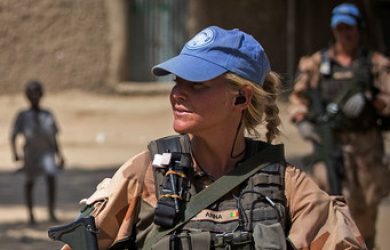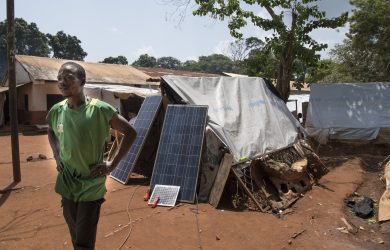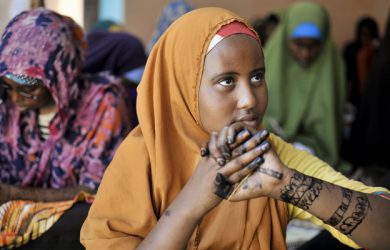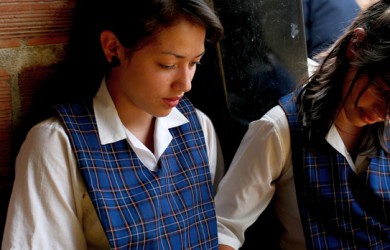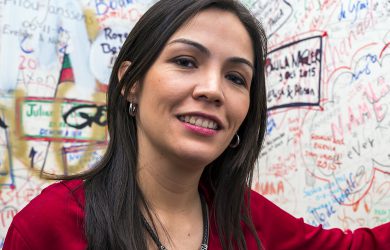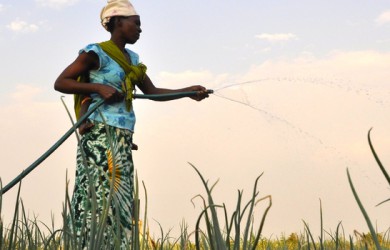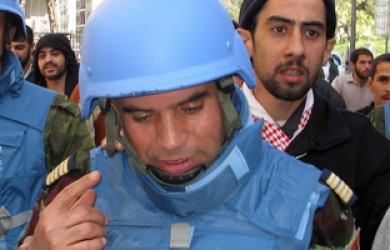- ABOUT US
- RESEARCH
- EDUCATION
- The Graduate School
- PhD Programme
- MSc Programmes
- Capacity Development
- News
- Design and Evaluation of Public Policies (DEPP)
- Design and Evaluation of Innovation Policies (DEIP)
- Evidence-Based Policy Research Methods (EPRM)
- Migration Management Diploma Programme (MMDP)
- Moving the Migration Policy Agenda Forward (MMPAF)
- Online Courses
- Short Courses (Masters)
- Tailor-made programmes
- UNU-MERIT, ITU Academy Training Centre
- Alumni
- Academic Funding
- NEWS
- EVENTS
- PUBLICATIONS
- LIBRARY
Ukraine and the SDGs: How the war has influenced global development
06 March 2024
A guest post by Anna Cherevko, Ukrainian national and current student in our 2023-2024 MPP cohort The UN Sustainable Development Goal (SDG) 16 – encompassing peace, justice, and strong institutions – happens to sit at the bottom of the list of the SDGs, and can therefore sometimes be seen as less important or crucial than some of the other goals. However, I can say from my personal background that experiencing war in one’s native country results in a completely different perspective on the...
Continue Reading →Mygration Story: Escaping conflict, embracing education — but never forgetting our roots
31 October 2018
Sofia Luz Castaneda was the daughter of a wealthy family in Guatemala, a country in Central America. Her father was a farmer, who employed many men to cultivate his lands. However, one day, one of her father’s employees caught her eye – Samuel Bonilla. Sofia and Samuel fell in love, yet their union was rejected by her family because of their different social standing. So the young couple decided to elope, moving across the border to San Francisco Menendez, in El Salvador. There they lived an eco...
Continue Reading →United Nations Day 2018: ‘A global response to conflict and climate change’
24 October 2018
A UN Day 2018 message from UNU Rector and UN Under-Secretary-General David M. Malone. ••• The United Nations of 2018 exists in a world that is more interconnected than ever before. Countries are no longer insulated from the setbacks and challenges of other nations, and all profit in some way from each other’s innovation and success. Global paths to shared progress, however, seem increasingly elusive among bitter social divides and growing inequality. Our success in overcoming these and other bar...
Continue Reading →Beyond moral obligations: From theories to practical solutions
06 August 2018
In the onset of rapidly evolving military conflict, determining responsibility and the most appropriate and effective response is a challenge. In the event of an armed conflict, displaced persons are likely to either be displaced internally or if they have the provisions in place, flee to a neighbouring state. In case of internal displacement, protecting human rights is the responsibility of the state – the irony being these same people may be fleeing the actions of that same state or its milita...
Continue Reading →Marking International Day vs. Sexual Violence in Conflict
18 June 2016
A joint post by Kristjana Sigurbjörnsdóttir, UNU-GEST and Ortrun Merkle, UNU-MERIT. On 19 June we mark the first anniversary of the International Day for the Elimination of Sexual Violence in Conflict. Established in 2015 the day aims to “raise awareness of the need to end conflict-related sexual violence and urge the international community to stand in solidarity with the survivors of sexual violence around the world”. Sexualised violence continues to be rampant in many conflicts, p...
Continue Reading →‘First Impressions’ Press Review: March 2016
31 March 2016
How do civil wars affect student achievement? How do social networks affect public goods? And how much has been achieved since the UN High Level Dialogue on International Migration and Development in 2013? These are a few of the questions tackled by our researchers over the last month — in one book, two journal articles and five working papers, among others. Click here for the full list. Books ‘Economic Systems of Innovation in the Arab Region‘ discusses the causes, consequence...
Continue Reading →The links between civil conflict & education in Colombia
02 December 2015
Civil wars disrupt many aspects of life and development, including the education of the next generation. Yet until now there has been very little research into the subject. We spoke with Dr. Silvia Consuelo Gómez Soler after her record-breaking defence on this topical issue — which is relevant worldwide. 1. Congratulations on your PhD defence! You focused on civil conflict and education, drawing lessons from Colombia. Why did you choose this topic? SG: Getting a better understanding of the...
Continue Reading →A Dividend for 23 Years of Peace & Democracy in Mozambique?
05 October 2015
Today marks 23 years of peace and democracy in Mozambique. The country has made impressive progress in economic growth, stability, regional cooperation and democratisation. While concerns remain over future development, efforts to build resilience have improved. Ayokunu Adedokun, PhD fellow, takes a closer look at Mozambique’s hard road to peace and democracy, and provides insights for other post-conflict societies. On all development indicators, Mozambique was not an obvious candidate for peace...
Continue Reading →Blog: Syrian Conflict Debate
25 October 2013
Will Syria break apart along sectarian lines? What are the origins of the conflict? What are the pros and cons of a US-led intervention? How is the war impacting individual lives? These were among the questions of a panel debate on the Syrian civil crisis at Maastricht University in October 2013. Panellists included Drs. Zina Nimeh and Lutz Krebs of UNU-MERIT and its School of Governance, as well as the former director of The Netherlands Institute in Damascus. Read the review by Diego Salama....
Continue Reading →Archives
Contact
UNU-MERIT
Boschstraat 24
6211 AX Maastricht
The Netherlands
T: +31 43 388 44 00
Email: info@merit.unu.edu
Boschstraat 24
6211 AX Maastricht
The Netherlands
T: +31 43 388 44 00
Email: info@merit.unu.edu
Partner sites
Newsletters
© 2024 UNU-MERIT | Maastricht University




